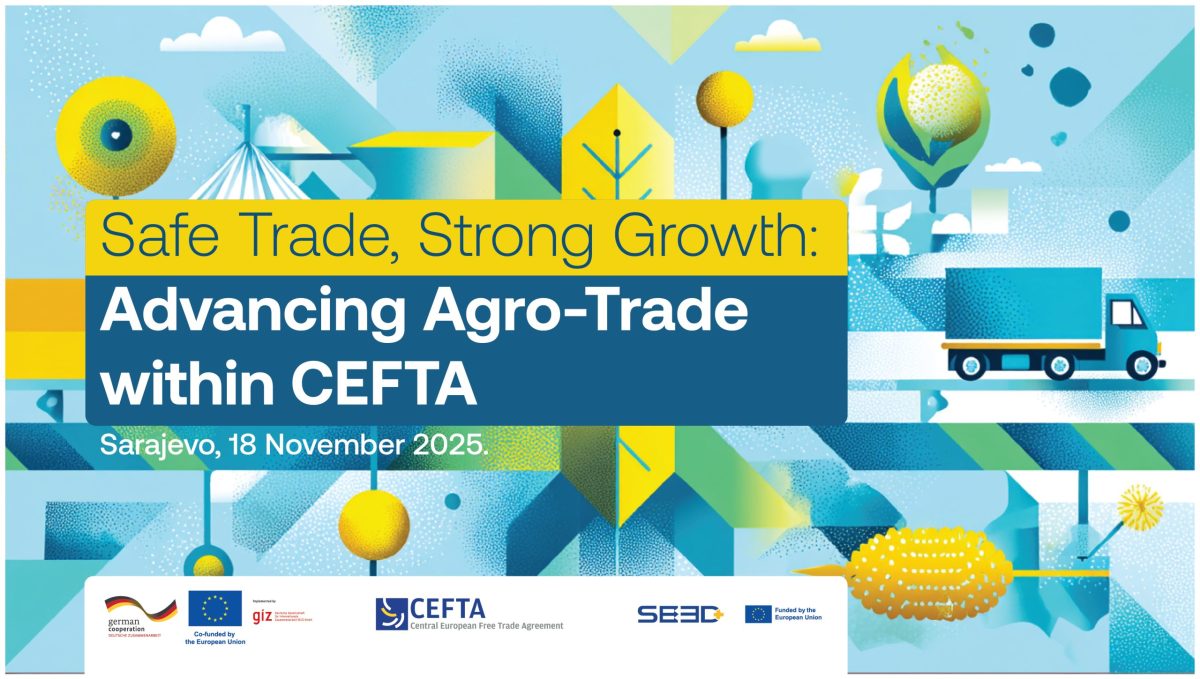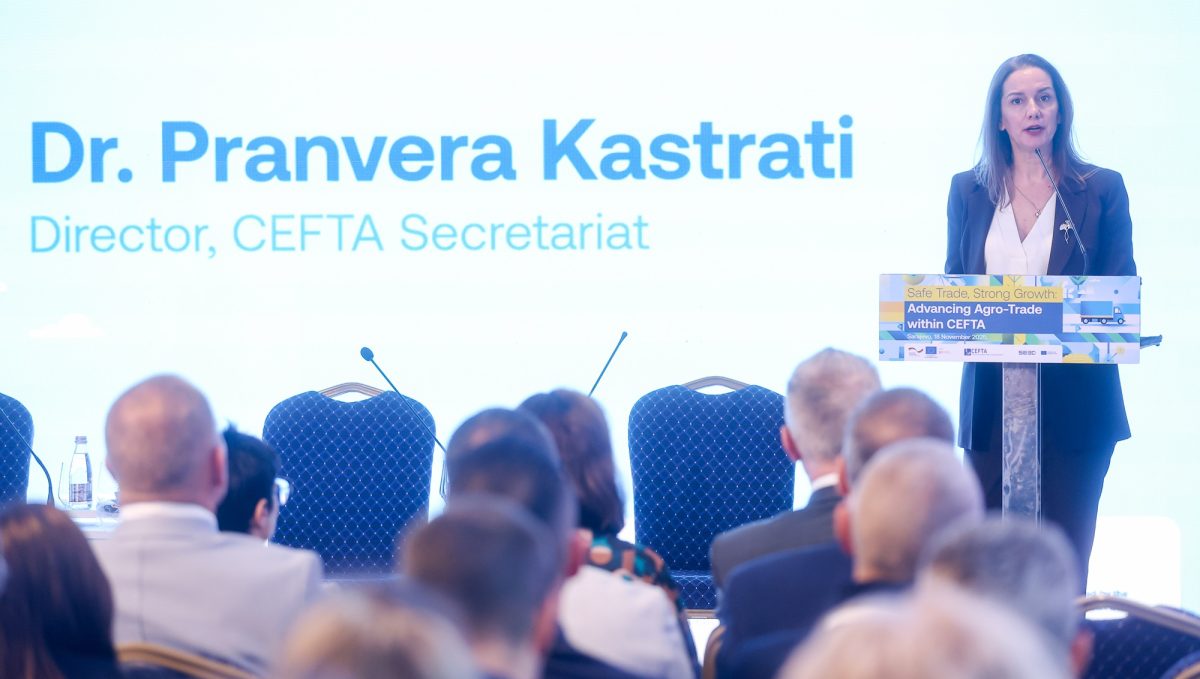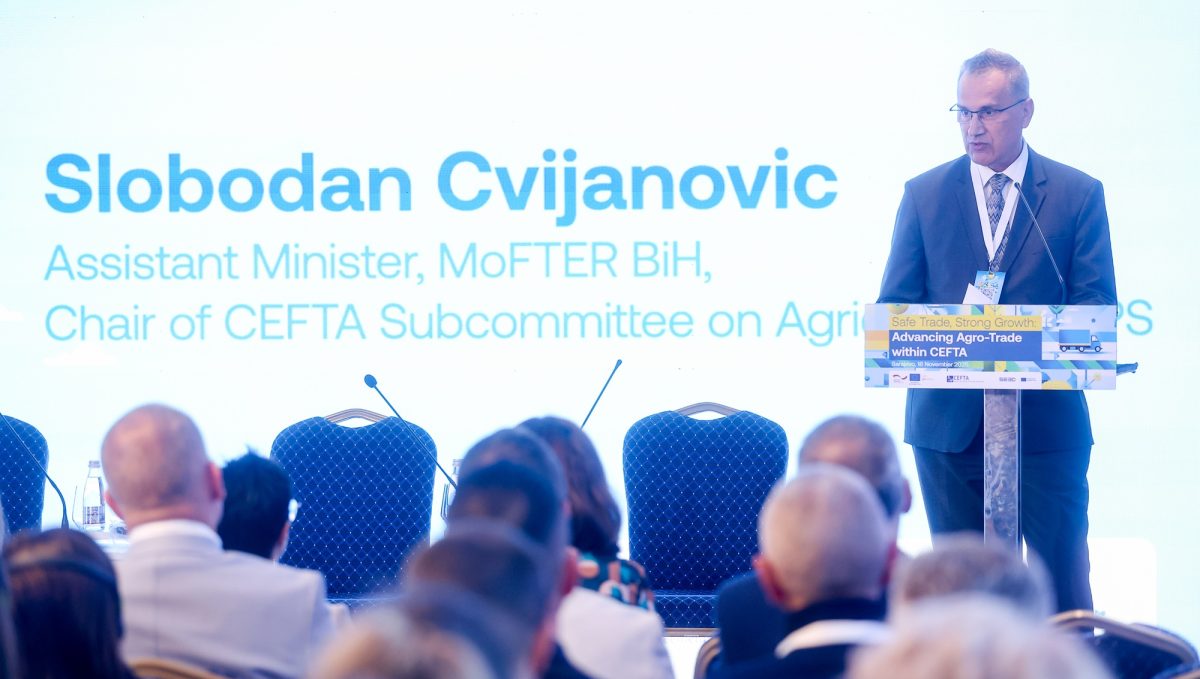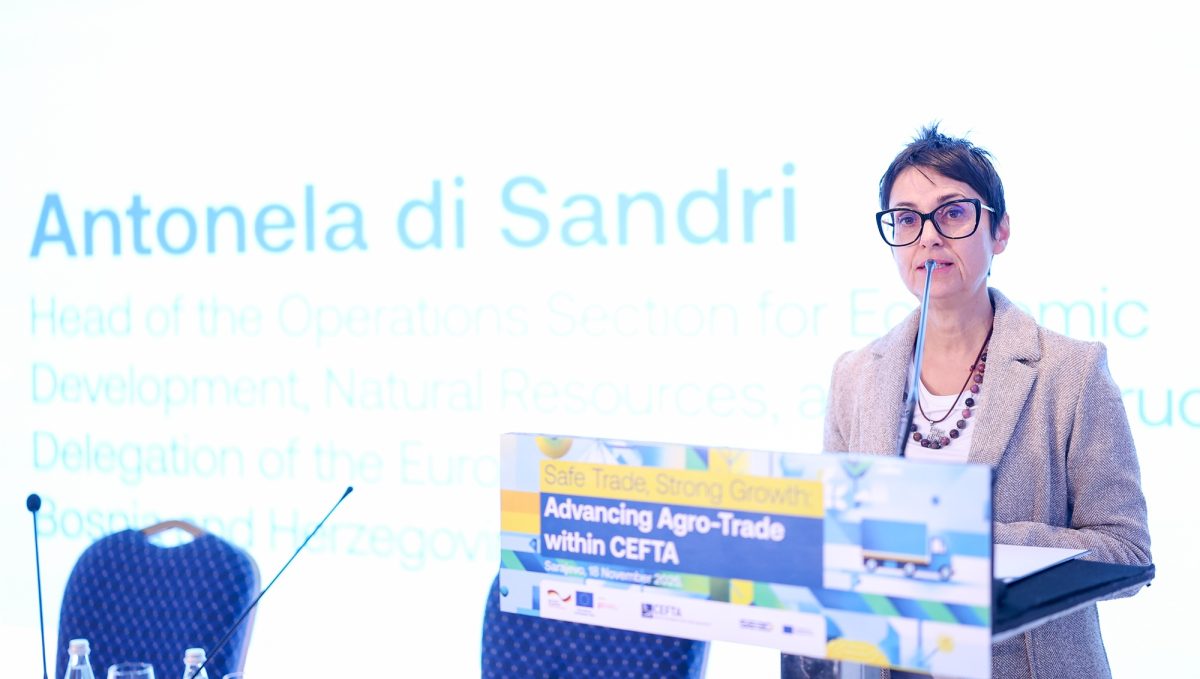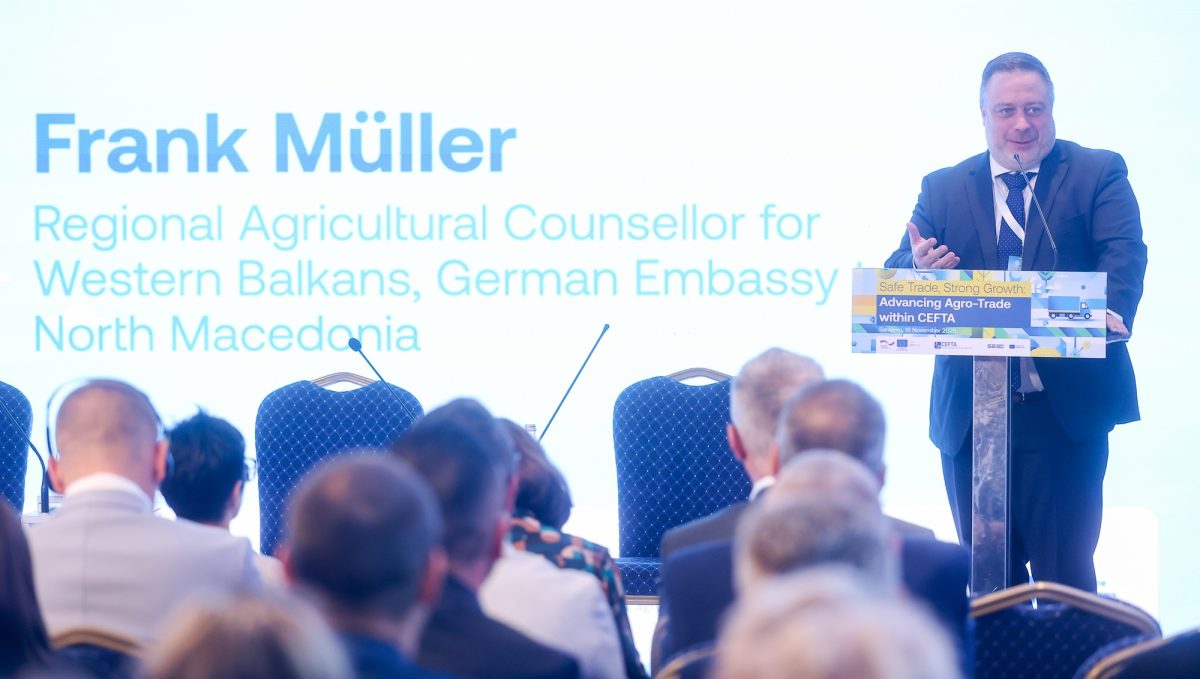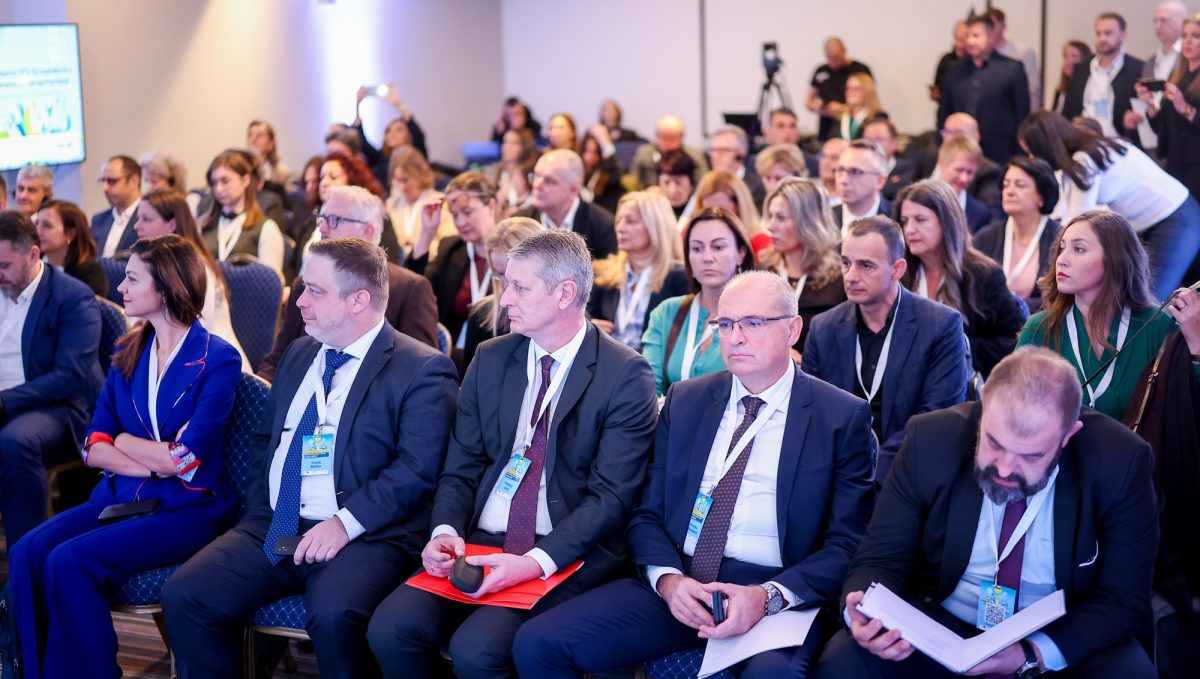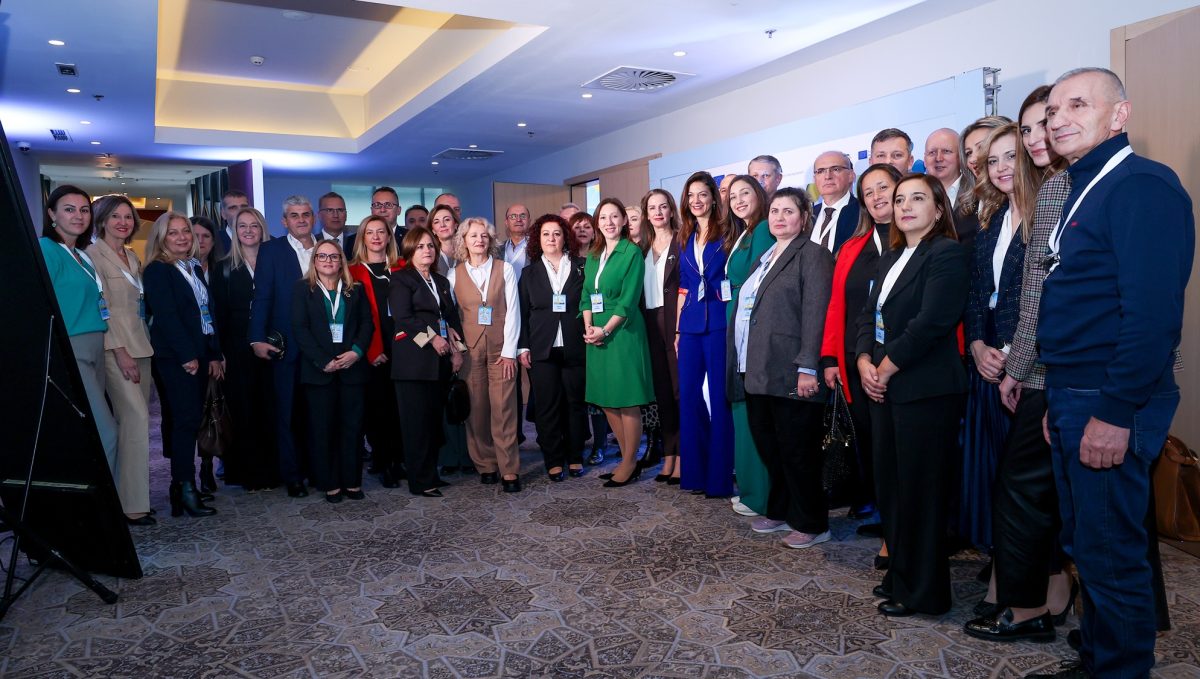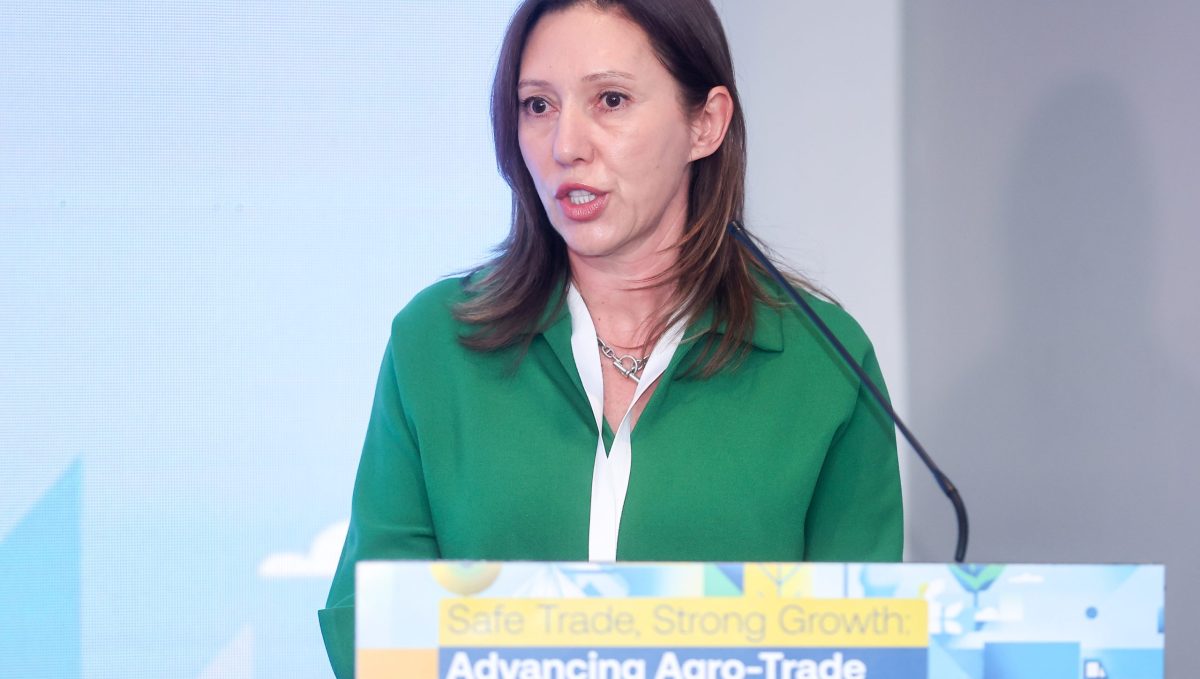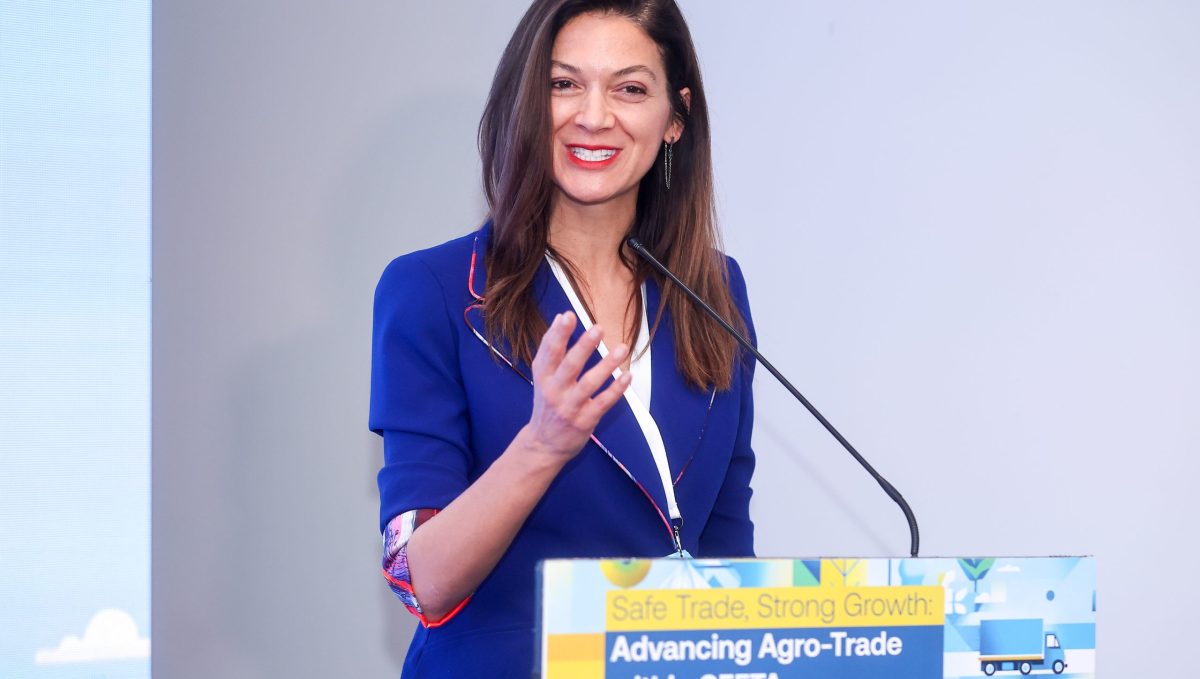The high-level regional conference “Safe Trade, Strong Growth: Advancing Agro-Trade in CEFTA” was held on 18 November 2025 at Swissotel Sarajevo, bringing together institutions from CEFTA Parties, representatives of the European Union, and leading experts from across the Western Balkans.
Hosted by Bosnia and Herzegovina, under its Chairmanship of the CEFTA Subcommittee on Agriculture and SPS, the conference served as an important platform for strengthening regional cooperation and supporting greater alignment with EU agri-food and SPS standards.
Organised by the SEED+ Action, implemented by the CEFTA Secretariat and funded by the European Union, in partnership with the EU4Trade Project, implemented by GIZ on behalf of the German Federal Ministry for Economic Cooperation and Development (BMZ) and co-funded by the European Union, the event highlighted the region’s shared commitment to safer and more integrated agri-food trade.
“Today, within the framework of Bosnia and Herzegovina’s Chairmanship of the CEFTA Subcommittee on Agriculture and SPS, the Ministry of Foreign Trade and Economic Relations (MoFTER) hosted the conference “Safe Trade, Strong Growth” in Sarajevo. The event focused on enhancing trade in agricultural products and strengthening a safe agri-food market in the region. Key topics included the digitalization of procedures, reinforcement of risk-based controls, and improved coordination among SPS institutions—all aimed at ensuring faster, safer, and more predictable trade in agricultural goods. Participants emphasized the importance of systems such as SEED+ and CEFTA TRACES NT, which help reduce administrative burdens and increase institutional trust. This marks the final event during Bosnia and Herzegovina’s CEFTA Chairmanship in 2025, once again reaffirming its strong commitment to supporting CEFTA Parties in strengthening capacities and preparing for the next phase of regional integration in 2026. Thanks to the European Union, the German Federal Ministry for Economic Cooperation and Development, GIZ, the EU4Trade Project, the SEED+ Project, and the CEFTA Secretariat for their continued support throughout Bosnia and Herzegovina’s Chairmanship“ said Slobodan Cvijanovic, Assistant Minister MoFTER Bosnia and Hercegovina, Chair of the CEFTA Subcommittee on Agriculture and SPS.
Reinforcing the tangible results of CEFTA’s digital journey, Dr. Pranvera Kastrati, Director of the CEFTA Secretariat, shared a powerful update on the real-world impact of CEFTA: „Intra-CEFTA trade in fruit and vegetables reached €233.1 million in 2024, a 9.11% increase from the previous year and an impressive 154.7% growth since 2014, now accounting for 9.85% of total CEFTA agricultural trade. This success is the result of concrete reforms introduced through the CEFTA Decision on facilitating trade in fruit and vegetables, which has significantly reduced unnecessary controls, accelerated digitalisation, and strengthened food and plant safety systems. The year 2026 will mark a major shift for CEFTA, from commitment to full implementation. Electronic certificates, risk-based inspections, and real-time data exchange will become the new normal, improving efficiency, lowering costs, and boosting competitiveness for farmers and exporters across CEFTA.”
Antonela di Sandri, Head of Operations 2, Socioeconomic Convergence and Sustainability Section at the Delegation of the European Union to Bosnia and Herzegovina stated at her opening speech that „the 2025 Enlargement Package confirms that the path toward EU membership is both open and achievable for the Western Balkans, provided reforms continue and cooperation deepens. In this process, gradual integration — particularly in areas like agriculture, trade, and digitalisation — is already bringing tangible benefits to citizens and businesses. The EU’s €6 billion Growth Plan for the Western Balkans will further support these efforts, helping to strengthen competitiveness, attract investment, and create new opportunities across the region.”
“The European Union will remain a committed partner — politically, financially, and technically — in building a connected, safe, and prosperous agri-food market in the Western Balkans. Safe trade builds trust, and trust builds growth. By working together, CEFTA and the EU are laying the foundations for stronger regional cooperation, sustainable agriculture, and the next steps toward full European integration”, she concluded.
Contributing to this vision, Frank Müller, Regional Agricultural Counsellor for the Western Balkans, German Embassy to North Macedonia, added: “Our shared objective is to make agri-food trade safer, faster, and more predictable — for farmers, consumers, and businesses across the region. Germany, together with the European Union, will continue to support regional economic cooperation and sustainable agricultural trade, ensuring that agri-food markets not only drive stronger regional growth and advance the Western Balkans on their path toward the EU Single Market, but also contribute to sustainable development and the region’s broader EU integration process.”
Promoting Regional Integration and CEFTA–EU Cooperation
The conference underscored the shared ambition of CEFTA Parties to strengthen the Common Regional Market, enhance competitiveness, and deepen cooperation with the European Union. Both SEED+ and EU4Trade showcased ongoing achievements and outlined priorities for modern, harmonised and digitally enabled agri-food trade systems.
Speaking on behalf of SEED+’s contribution to regional integration, Edna Karadza, SEED+ project manager stated: “I am proud to say that SEED+ is the backbone of CEFTA’s digital connectivity. It connects people, customs, inspections, and administrations; by enabling fast, secure, and transparent data exchange. Together, we are cutting waiting times, reducing administrative burdens, and helping our economies trade smarter. Over 24,000 phytosanitary and 35,000 veterinary certificates have been exchanged through CEFTA TRACES NT in the last year, turning digitalisation into real-time trust, with significant savings for economic operators and up to 70% increase of efficiency of inspections across CEFTA.”
Building on these achievements, Tanja Bošković, EU4Trade Head of the Project, underlined the strategic value of harmonized efforts in agri-trade facilitation:“Progress didn’t happen by chance. It came from coordination, persistence, and institutions willing to work openly and constructively. Challenges remain, technical, political, and practical, but we work through them, not around them. Every step, big or small, makes the system safer and more predictable. We will carry this work forward, build on what has been achieved, and support our partners every day, even when conditions are challenging. Together, we can keep building a stronger, more connected region.


